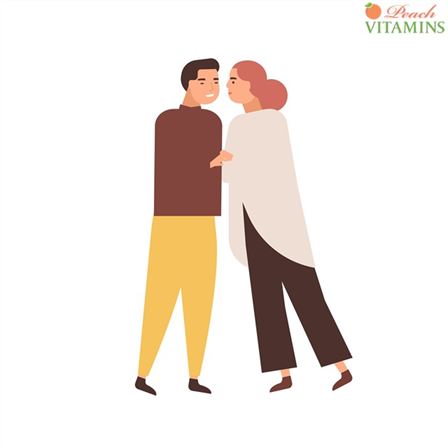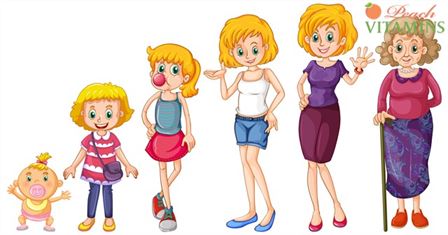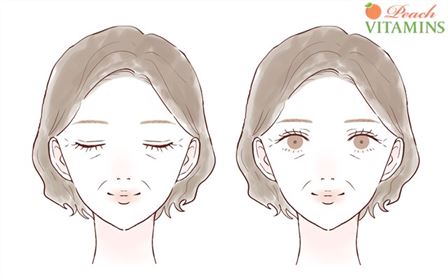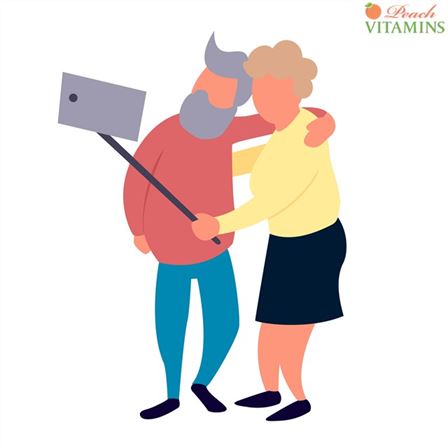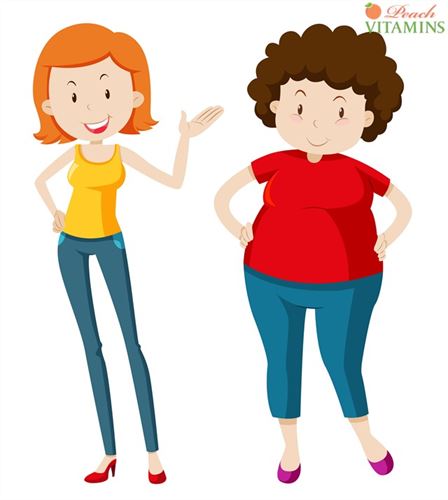Are hot flashes affecting your life? Is your mood changing? Are you feeling tired all day long? Have you been diagnosed with menopause?
When women reach their 40s they experience menopausal symptoms such as hot flashes, night sweats, insomnia, vaginal dryness, and mood swings. These symptoms can cause stress and anxiety and affect your quality of life.
Although conventional Western medicine offers effective treatments for these symptoms, they come with unwanted side effects. In contrast, Ayurveda offers safe and effective alternatives that address both the mind and body.
Ayurveda has a natural solution for dealing with these problems. We’ll look at some of the common causes of hot flashes and what Ayurveda can help with.
The Approach to Menopause and Hormonal Changes
Hormones play a major role in our lives. They regulate everything from moods to metabolism to sexual function. So when hormones change during menopause, women experience a wide range of physical and emotional symptoms.
Women who suffer from hot flashes often feel embarrassed and frustrated because these episodes disrupt daily activities, including restful sleep and intimacy.
Fortunately, there are many natural remedies for hot flashes that can help relieve discomfort and improve quality of life.
One of the most effective treatments is Ayurveda, a traditional Indian system of medicine that emphasizes balance and harmony.
Ayurvedic herbs and spices can treat hot flashes and other menopausal symptoms. Some of the most common include:
• Shatavari (Indian ginseng): This herb helps reduce anxiety and stress, improves memory, and promotes healthy libido.
• Brahmi (Bacopa monnieri): This herb reduces irritability, depression, and fatigue.
• Ashwagandha (Withania somnifera): This herb increases energy and stamina, relieves insomnia, and improves concentration.
• Vitex agnus castus (Chasteberry): This herb reduces anxiety and stress, improves circulation, and supports healthy hormone production.
• Black pepper: This spice contains capsaicin, which stimulates the body’s thermoregulatory centers and may help reduce hot flashes.
• Ginger: This spice stimulates sweating and may help reduce hot flashes.
• Turmeric: This spice contains curcumin, which may help reduce inflammation and support healthy hormone levels.
Once a woman has reached menopause, she may continue to have hot flashes for 6 months to 5 years, and in some women, they may linger for 10 years or even longer, according to the North American Menopause Society (NAMS).
Source: (healthline.com)
Women Can Use Ayurveda Medicines to Prevent Premenstrual Syndrome
Premenstrual syndrome (PMS) is a condition experienced by many women during the luteal phase of their menstrual cycle. Symptoms include mood swings, irritability, bloating, breast tenderness, headaches, cramps, and fatigue. PMS affects approximately 75% of menstruating women at some point in their lives.
There are two types of PMS: premenstrual dysphoric disorder (PMDD), and premenstrual syndrome (PTS). The symptoms of PMDD are severe enough to interfere with daily activities, whereas those of PTS are mild enough not to affect daily life.
Although there is no cure for PMS, Ayurvedic medicine can help ease its symptoms. Ayurvedic medicines are natural remedies made from herbs, minerals, and animal parts. They are used to treating a variety of conditions, including digestive disorders, skin problems, arthritis, and heart disease.
Ayurvedic medicines are safe and effective when used correctly. However, they should be taken only after consulting a qualified practitioner who knows how to use them safely and effectively.
The Ayurvedic perspective believes that each person is unique and has his/her own constitution. This means that everyone responds differently to different foods, medications, and lifestyles. Thus, every individual needs to find out what works best for him/her.
Ayurveda says that the body is composed of three elements: ether, air, and fire. These three elements interact with each other to create the physical body.
Ether is the element of space. Air is the element of movement. Fire is the element of heat. Together, these three elements form the human body.
The five basic doshas or humors—vata, pitta, kapha, vayu, and agni—maintain the equilibrium of the body. Vata dosha is associated with wind and space; pitta dosha is associated with fire and water; kapha dosha is associated with earth and water; vayu dosha is associated with air and fire; and agni dosha is associated with metabolism and digestion.
Each dosha has its own characteristics and functions. When one dosha becomes imbalanced, it causes imbalance in the others.
Vata dosha regulates the nervous system, brain, eyes, ears, nose, throat, lungs, stomach, intestines, spleen, pancreas, liver, gallbladder, urinary tract, reproductive organs, and blood.
Pitta dosha regulates the mind, emotions, senses, speech, taste, touch, and skin. Kapha dosha regulates the muscles, bones, joints, fat tissue, and internal secretions. Vayu dosha controls respiration, circulation, and elimination. Agni dosha regulates metabolism and digestion.
For 10 to 15 percent of women, hot flashes are so severe that they disrupt normal functions, such as leading a meeting or sticking to a schedule.
Source: (hopkinsmedicine.org)
Cleansing the Physiology of Ama
Amrita (nectar) is a Sanskrit term used to describe the essence of life. It represents the vital energy that flows through our bodies and connects us to everything we experience.
When we eat food, digest it, and assimilate nutrients, Ama (toxins) builds up within our body. This buildup of toxins causes heat, inflammation, pain, and disease.
To cleanse the physiology of ama, Ayurvedic medicine uses herbs, oils, and spices to stimulate digestion, purify the blood, and flush out impurities. The goal is to restore balance and health.
What Can Trigger a Hot Flash?
Women who are going through menopause often experience hot flashes. They’re usually accompanied by sweating, chills, nausea, dizziness, headaches, and fatigue. But hot flashes aren’t just uncomfortable; they can be dangerous.
They can cause blood clots, heart attacks, strokes, and even death. So what causes them? The answer is simple: estrogen loss. Estrogen is a hormone produced by the ovaries and adrenal glands. It helps regulate menstrual cycles, bone density, moods, energy, and sexual desire.
When women enter perimenopause (the years leading up to menopause), their estrogen production decreases. This leads to hot flashes, night sweats, vaginal dryness, and other symptoms.
But there’s good news! Ayurvedic medicine offers natural remedies for hot flashes. These remedies include herbs, oils, and minerals that help balance hormones and reduce the frequency and intensity of hot flashes.
Here are some tips for managing hot flashes:
• Eat foods rich in vitamin B6, magnesium, zinc, and calcium.
• Drink plenty of water.
• Avoid caffeine, alcohol, and spicy food.
• Use a humidifier during the winter months.
• Exercise regularly.
• Take a warm bath or shower.
• Try aromatherapy.
How to Handle Menopausal Mood Swings
Some women find these symptoms bothersome, while others welcome them as a sign that they’re entering the final stages of life. Whatever your feelings, there are ways to cope with menopausal mood swings.
One way to handle menopausal mood swings is to take advantage of Ayurveda, the ancient Indian system of medicine. The following tips may help you deal with menopausal mood swings:
• Practice yoga or meditation daily.
• Get enough rest every day.
• Keep stress under control.
• Reduce your intake of processed foods.
• Eat lots of fresh fruits and vegetables.
• Include more whole grains and legumes in your diet.
• Increase your consumption of healthy fats such as olive oil, avocados, nuts, seeds, and fish.
• Add ginger to your meals.
What to Do if Hormonal Imbalance Causes Anxiety or Depression?
Hormone imbalance causes anxiety and depression because hormones control moods.
When we’re stressed out, our hormone levels rise. This stress response helps us deal with life’s challenges. However, when we experience chronic stress, our body becomes desensitized to these hormones.
This means that when we’re feeling anxious or depressed, our bodies produce lower amounts of certain hormones than usual. These imbalances cause anxiety and depression because hormones regulate moods.
If you’re experiencing hormonal imbalance, you may feel anxious or depressed. But there are things you can do to improve your emotional health.
Here are some tips to consider:
• Get enough sleep. Sleep helps balance hormones and reduces stress.
• Exercise regularly. Regular exercise releases endorphins, which boost energy and reduce stress.
• Eat healthy foods. Eating nutritious food increases serotonin production, which improves mood.
• Practice yoga. Yoga calms the mind and relieves stress.
• Meditate. Meditation decreases cortisol levels, which lowers stress.
• Take supplements. Taking vitamin B6 and magnesium reduces stress.
• Talk to your doctor. Your doctor can prescribe medication, talk therapy, or herbal remedies to treat symptoms of anxiety and depression.
How to Deal With Fatigue
Fatigue is a common symptom among menopausal women. While most women experience some degree of fatigue during menopause, many find themselves dealing with extreme fatigue that interferes with daily activities.
There are several reasons women may experience extreme fatigue during menopause. One reason is that estrogen production decreases dramatically after menopause, causing hot flashes and night sweats. Another reason is that the body produces less progesterone, which helps regulate sleep disturbances.
Some women deal with severe fatigue by taking medication, while others try alternative treatments, including Ayurveda medicine.
Ayurveda medicine is based on ancient Indian philosophy and uses natural herbs and spices to treat various health conditions. The principal goal of Ayurvedic medicine is to restore balance and harmony to the mind, body, and spirit.
Ayurvedics believe that the body comprises three basic elements — air, fire and water. Each element corresponds to a different organ system in the body. Air is related to the respiratory system, fire relates to the digestive tract, and water relates to the circulatory system.
Ayurvedically speaking, there are two types of fatigue: physical and mental. Physical fatigue occurs because of a lack of energy. Mental fatigue happens when the brain doesn’t function properly.
Poor nutrition can cause physical fatigue, elevated stress levels, lack of exercise, and other factors. Depression, anxiety, insomnia, and other issues can cause mental fatigue.
Ayurvedics use herbal remedies to help reduce physical fatigue. They recommend eating foods rich in iron, calcium, magnesium, zinc, vitamin B6, vitamin C, and omega-3 fatty acids. These nutrients help build strong bones and muscles, which reduces fatigue.
Ayurvedics also recommends consuming natural foods high in protein, carbohydrates, fiber, and essential fats. These foods provide the building blocks needed to produce hormones and neurotransmitters that keep the brain functioning properly.
These practitioners also recommend avoiding caffeine, alcohol, processed food, sugar, and refined grains. These foods deplete the body of important vitamins and minerals, which leads to fatigue.
Using Warm Baths During Menopausal Symptoms
Warm baths help reduce hot flashes because they raise body temperature. This helps relieve the symptoms of a graceful menopause.
Herbal remedies, such as black cohosh, red clover, and soy, may also be helpful. These herbs contain phytoestrogens, plant compounds similar to estrogen. Phytoestrogens work by mimicking estrogen in the body. So they can help ease hot flashes.
However, these herbs aren’t recommended for everyone. Talk to your doctor before trying any herbal remedy. And remember, not all herbs are safe for everyone. Some herbs can cause side effects, such as nausea, headaches, and heart palpitations.
If you decide to use herbal remedies, talk to your doctor first. He or she can recommend the right herb for you based on your health history and current medications.
Ayurvedic Medicine for Hot Flashes – Conclusion
Ayurvedic medicine for hot flashes can help ease the symptoms associated with menopause. However, it’s best to discuss your options with your doctor first.
Interested in learning more about Ayurvedic medicine with Ayurvedic practitioner Cosmic Mike? Schedule a free consultation where he will answer your questions about Ayurveda and give you a personalized treatment plan.

